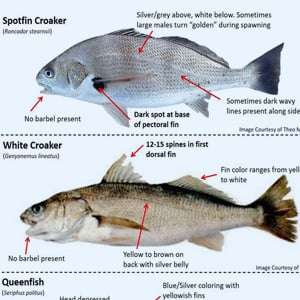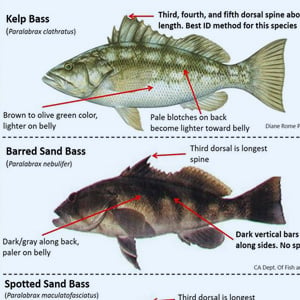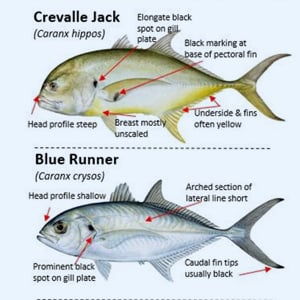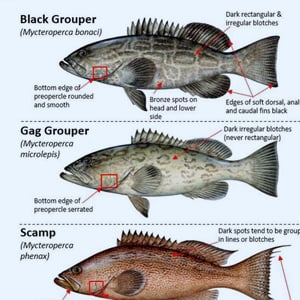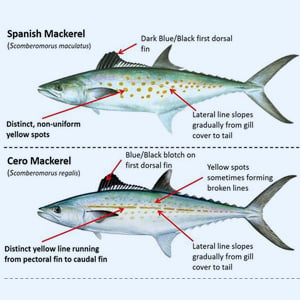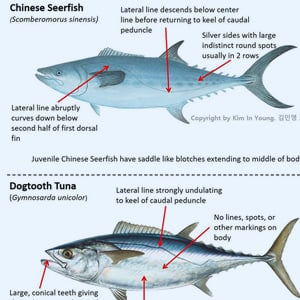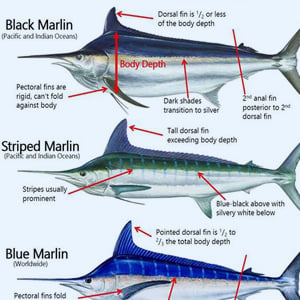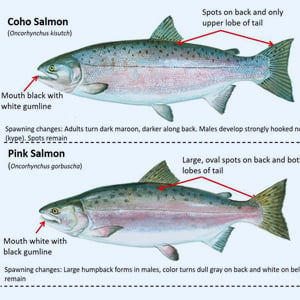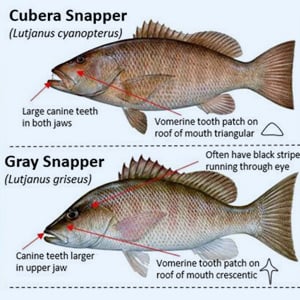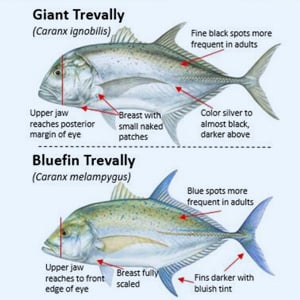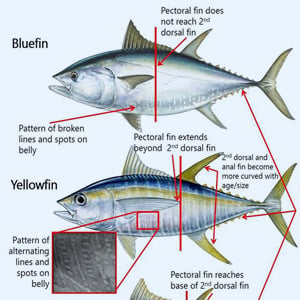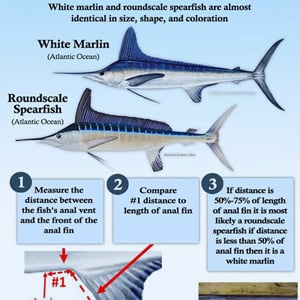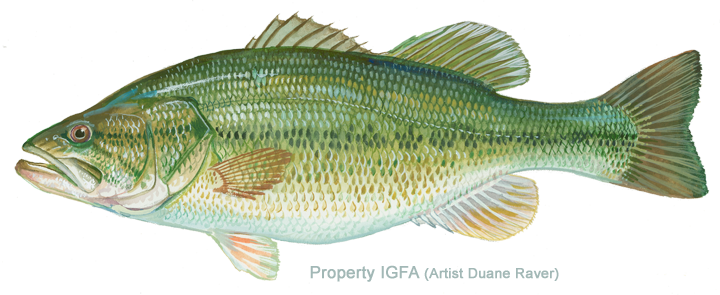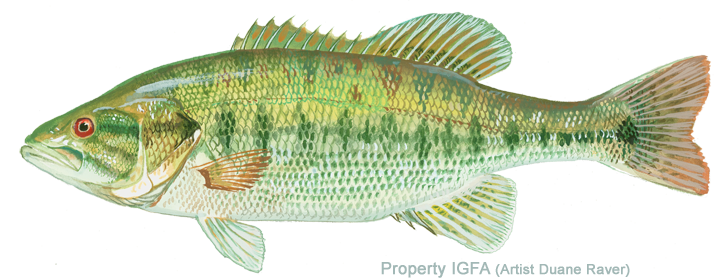Game Fish Identification Reference Guides
Bass, smallmouth
(Micropterus dolomieu)
(Micropterus dolomieu)
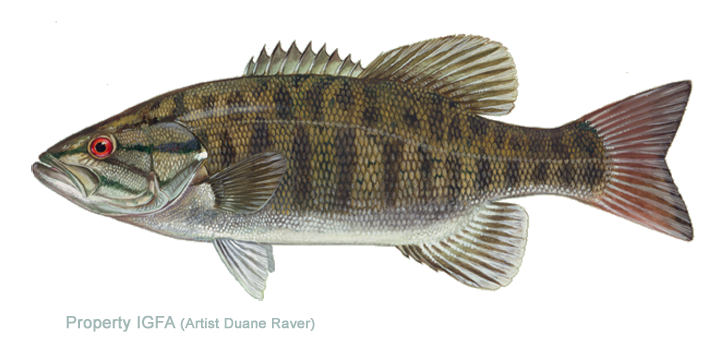
1802; CENTRARCHIDAE FAMILY; also call black bass
The smallmouth bass is native to the eastern half of the U.S.A. and southeastern Canada from Manitoba and Quebec south to the Tennessee River system in Alabama and west to eastern Oklahoma. It has been widely transplanted so that today it occurs in almost every state and many other countries. It is not as widespread as the largemouth bass, (Micropterus salmoides).
The smallmouth bass is the second largest member of the sunfish family Centrarchidae, attaining a weight of almost 12 lb (5.45 kg). Only the largemouth bass, which reaches a weight of over 20 lb (9.08 kg), is heavier. The smallmouth is easily distinguished from the largemouth by its clearly connected dorsal fins, the scales on the base portion of the soft rayed second dorsal fin, and the upper jaw bone which extends only to about the middle of the eye. The coloration is also distinctive being usually more brownish in the smallmouth and more greenish in the largemouth. The smallmouth also has faint bars on the body (prominent in the young), while the largemouth has a fairly wide streak of oval or diamond shaped markings or blotches down the midline of the sides. In either species the colors may vary and the markings may be inconspicuous or absent in individuals based on time of year and various biological factors. Generally, the smallmouth has bars radiating back from the eyes, and though similar bars may be present in individuals of other species, including the largemouth, they seem to be more prominent and more consistently present in the smallmouth. The eyes are red or orangish. In young smallmouths there is a distinctive band of orange at the base of the tail. This is followed by a black band with the tip of the tail being white or yellow.
They prefer deeper water than the largemouth and areas of clear, fast flowing streams and pools with gravel/rubble bottom. In waters cohabited by both smallmouth and largemouth, the largemouth bass will spawn a little earlier due to the fact that the shallower nesting sites they choose in protected areas with emergent vegetation warm to the optimum temperature sooner than the deeper, rockier sites chosen by the smallmouths.
There are many who say that the smallmouth bass is gamer than the largemouth. There is no doubt that it rivals the largemouth in popularity
The smallmouth bass is native to the eastern half of the U.S.A. and southeastern Canada from Manitoba and Quebec south to the Tennessee River system in Alabama and west to eastern Oklahoma. It has been widely transplanted so that today it occurs in almost every state and many other countries. It is not as widespread as the largemouth bass, (Micropterus salmoides).
The smallmouth bass is the second largest member of the sunfish family Centrarchidae, attaining a weight of almost 12 lb (5.45 kg). Only the largemouth bass, which reaches a weight of over 20 lb (9.08 kg), is heavier. The smallmouth is easily distinguished from the largemouth by its clearly connected dorsal fins, the scales on the base portion of the soft rayed second dorsal fin, and the upper jaw bone which extends only to about the middle of the eye. The coloration is also distinctive being usually more brownish in the smallmouth and more greenish in the largemouth. The smallmouth also has faint bars on the body (prominent in the young), while the largemouth has a fairly wide streak of oval or diamond shaped markings or blotches down the midline of the sides. In either species the colors may vary and the markings may be inconspicuous or absent in individuals based on time of year and various biological factors. Generally, the smallmouth has bars radiating back from the eyes, and though similar bars may be present in individuals of other species, including the largemouth, they seem to be more prominent and more consistently present in the smallmouth. The eyes are red or orangish. In young smallmouths there is a distinctive band of orange at the base of the tail. This is followed by a black band with the tip of the tail being white or yellow.
They prefer deeper water than the largemouth and areas of clear, fast flowing streams and pools with gravel/rubble bottom. In waters cohabited by both smallmouth and largemouth, the largemouth bass will spawn a little earlier due to the fact that the shallower nesting sites they choose in protected areas with emergent vegetation warm to the optimum temperature sooner than the deeper, rockier sites chosen by the smallmouths.
There are many who say that the smallmouth bass is gamer than the largemouth. There is no doubt that it rivals the largemouth in popularity

